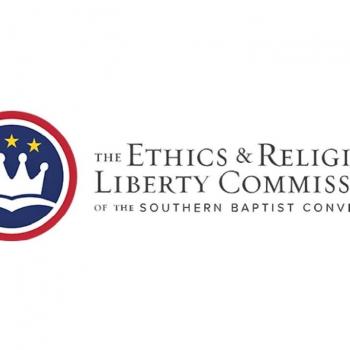There is a difference between accidental plagiarism and willful plagiarism. Accidental plagiarism comes through carelessness—but it is not a deliberate or malicious act. It is cause for concern and the one who commits it ought to certainly be more careful in reflecting the sources they’ve drawn from, no doubt, but it is different. It can likewise reflect a heart of laziness, hastiness, or any variation of similar qualities which need to be addressed—but the inherent difference between accidental and intentional plagiarism is intent. One seeks to pass off the arguments as their own whereas the other actually seeks to make their own contributions.
Deliberate plagiarism is precisely what we have seen Ed Litton caught up in and there is no measurable way it can be seen as accidental. I’ll simply put it this way: if any seminarian were discovered to have plagiarized to the extent that Litton has, they would be dropped from their degree program almost instantaneously. There would be no question of what took place; no excuses would be given, nor suffice, and rightly so. Likewise, if it were discovered that an author plagiarized, their books would be pulled from the shelves and the contract rendered null and void. In the academic world, plagiarism can result in ruining your entire career. The point being that in any other setting, this would not be a matter of much debate.
Unfortunately, there is often a debate within Christian circles regarding the merits of accusations of plagiarism, namely, because some don’t believe intellectual property rights pertain to Christian materials. However, I have little interest in that side of the argument with Ed Litton and ministers of the gospel in general, because I believe it starts with a fundamental misunderstanding of the true issue at hand. The issue is bound up in the nature and role of those called to the pastorate, and therefore, surrounds the non-negotiable qualifications of an elder that Paul lays out for us in the pastoral epistles. In other words, I believe the Scriptures teach this is a sinful act that ultimately disqualifies one from the office of the pastorate if repentance is not sought.
It should be noted that Ed Litton is not the only one guilty of this within Evangelicalism. The modern phenomena of ghost-writing and online services such as the Docent Group, among others, that prepare everything from research, to illustrations, and even full sermons, leaves those who utilize their services in much the same position. While the Docent Group has scrubbed the testimonials section from their website, the Way Back Machine holds an archive of some notable figures who utilized their services (here and here). Interestingly enough, figures such as Mark Driscoll, J.D. Greear, Matt Chandler, John Ortberg, Craig Groeschel, gave glowing commendations to the site’s services.
Docent has been a humongous help to me, saving me literally hours each week and improving the quality of my preaching dramatically. These guys are the real deal. I give them assignments and questions on everything from interpretation to cultural analysis to illustration, and they get me thorough answers, always on time. They are outstanding scholars and really “get” my job as a communicator. I often have people remark to me, “How many hours did you spend on that sermon? Where do you get time to do all that research?” Ha. Thanks, guys for making me look so good! (J.D. Greear)
The fundamental issue I take with this is that pastors who utilize these types of resources never wrestle with the text themselves. They never have to grapple with their own sin in the midst of that process—yet even worse than these former things, is the fact that they’ll never approach the text in a manner that shepherds their own flock. This is part and parcel to why I take issue with the likes of Ed Litton’s sermon series through Romans where he unabashedly ripped off J.D. Greear’s sermons. For the sake of the argument (though the quote above gives us some likely implications on the matter), let’s say Greear didn’t use Docent for his series on Romans. Ed Litton lifted several sections verbatim, including quotes, illustrations, and applications, as if they were his own material.
Not once in all of that did he stop to think of his own congregation and their own particular needs. Instead, he would have simply regurgitated another man’s quotes, illustrations, and applications as his own, which is downright deceitful to his flock. Additionally, he has functionally abandoned the vital role of shepherding that is inextricably bound up in the act of preaching itself (which, as an aside, is part and parcel to the issue of females in the pastorate that few wish to speak towards as they bifurcate between teaching and exercising authority, and preaching). Yet according to 1 Pet. 5:1-4, this is what the pastor is called to with great eagerness, knowing his heavenly reward is directly attached to this task. The point being: one of the primary roles of the pastor is to shepherd the flock of Christ. If one so neglects this role in the pulpit, the question remains: where else may he be neglectful of such duties?
Secondly, the presumption behind the qualification for aptitude in teaching is that the one called to the pastorate is actually able to teach. It entails a mastery of the biblical text, so that the workman can remain unashamed in his duties before God. In likewise necessitates that an individual is able to interact with the various resources on the text in front of him—not as mere spectator of another’s interaction with them—but as one who is able to discern truth from error himself. One need not be a subject matter expert on all things related to the biblical text (indeed, such a task is impossible). However, if one is apt to teach, they must be apt in their studies. They must devote themselves to study hard and well, especially knowing that God rewards ordinary means of faithfulness.
Part and parcel to this is his ability to refute those in error, instruct others with great patience, and maintain unity of the faith as he seeks the ultimate edification of his flock. Ultimately, Ed Litton is utterly dependent upon the faithfulness of Greear as he interacted with the text, and circumvented the work of the Spirit in preparing sermons from the text itself. Given the incredibly dubious claims that the Scripture “…whispers about sexual immorality,” it should go without saying that both of these men are now liable to unfaithfulness to the text, and Litton’s trust in Greear proved unfounded. When one considers his positions on women preaching, hot-button social issues, his Trinitarian maladies (since redacted) on his church’s statement of belief, etc., the question is not necessarily even one of “if” he apt to teach.
Thirdly, an elder/pastor is to be above reproach, respectable, and thought well of by outsiders (unbelievers). In light of this, the continued nature of what seems to be a cover-up of additional materials, and the two qualifications above that are being sidelined, it goes without saying that these qualifications have been forfeited as well. One under the scrutiny of the public eye and that of the broader church who falls under moral suspicion is no longer above reproach. What’s problematic in this is that rather than own up to wrong-doing and ministerial misconduct, it has been downplayed as accidental. In other words, deceit was covered up with more deceit and there should be no tolerance for such deviance as this. Compound this further with those doing damage control for Litton and there is great cause for concern on the whole.
In all of it, my simple point, as I have written before, is that for one to be above reproach, his life leaves no room for even the question of impropriety. What invariably wins out against accusations that come against him is the upright character and demonstrable evidence of a long-term, godly, and wise life in all areas of Christian faithfulness. In other words, he is able to stand the test of his character against accusations of unfaithfulness, rather than downplay or hide them. When measured against the plumb line of God’s Word, the faithful minister can stand in the pulpit without shame and to great effect. For those who do not measure up to the standards of Scripture, they will forever be one whose ministry is tainted with the residual stain of infidelity of some sort.
These are no matters of adiaphora within the church—and it ought to be no surprise to us when we see so many issues prevalent within the Evangelicals in pews across the country when her leaders are trumpeting the way.













